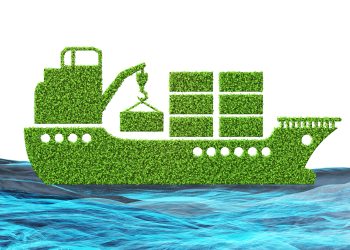The International Association of Ports and Harbors (IAPH) President Santiago Milà informed that World Port Climate Initiative is now extending into a World Port Sustainability Programme, that is expected to identify how the global port sector can contribute to the 17 Sustainable Development Goals (SDGs) adopted by UN in 2015, covering biosphere, society and economy.
These remarks were presented at the opening ceremony of the 3rd Maritime Silk Road Port International Cooperation Forum, held in China, on 11-12 July.
Specifically, Mr Santiago said that the main role of ports is to add value to the economy and, in this context, they should strive to design efficient logistics chains, which will eventually contribute to a sustainable growth based on three pillars: social, environmental and economic. He also noted that a lot of attention has been paid to the environmental pillar, “but true sustainability is about integration with economic and societal dimensions.”
In view of this, he informed that IAPH’s World Port Climate Initiative is now extending into a World Port Sustainability Programme.
Under WPCI, a number of practical tools were developed, such as guidance document “Carbon Footprinting for Ports”, the website on Onshore Power Supply (OPS) and the Environmental Ship Index (ESI). Now IAPH decided to integrate the WPCI in a wider World Ports Sustainability Programme (WSPS) that will extend the scope from climate action to a full range sustainability port development challenges the industry is facing.
By incorporating “Smart Port” concept and “Digitalization”, the WSPS is expected to assist ports in increasing efficiency and sustainability in port operations.
The WSPS will be officially launched in Antwerp, Belgium, on 22-23 March 2018.

































































